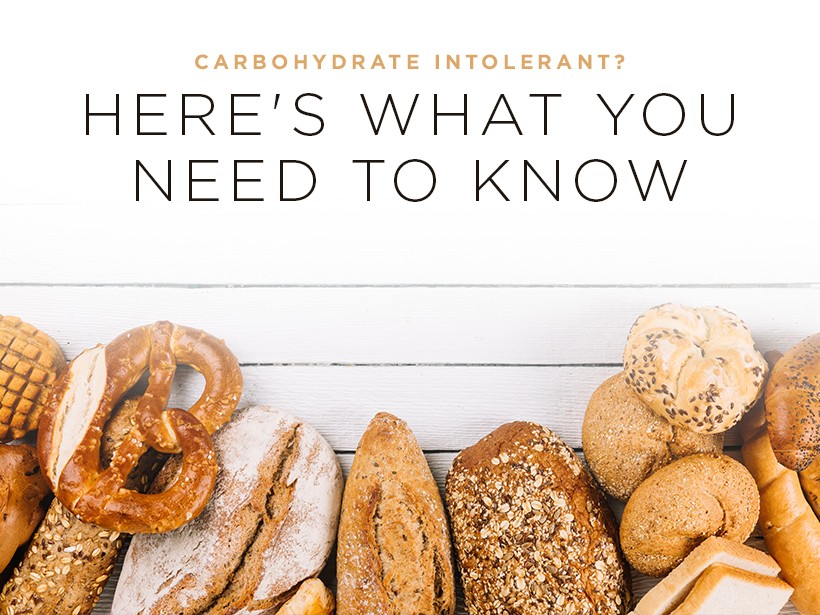By now, we’ve all heard the hype about good and bad carbohydrates, but did you know that there are actually some people who are carbohydrate intolerant? Yes, it’s a real thing, but it’s also what Dr. Lipman1, a leader in integrative and functional medicine, calls a “gray area.” Carbohydrates interact differently with each body, and what works for one may not work for another. Think you might be carbohydrate intolerant though? Here’s what you should absolutely know.
Carbohydrate Tolerance Varies from Person to Person
Dr. Lipman says he’s seen an increasing number of patients who’ve limited their processed and sugary foods in favor of a whole grain and whole food-rich diet. Yet these same patients still feel sluggish, are overweight and have high blood sugar. While some in the nutritional field may debate why this is happening, Dr. Lipman says, “It’s likely a combination of factors: a genetic predisposition combined with a sedentary, stressful, and sleep-deprived lifestyle.”
Essentially, he says, decades of processed foods and medicines have irreparably changed the gastrointestinal microbiome and shifted what the body associated with normal and healthy foods. This basically means that the seemingly healthy foods now turn into sugar in the blood. Moreover, it lowers the body’s tolerance for carbohydrates overall.
Why Blood Sugar is So Important
“When carb intolerance is at play, your body is telling you to get stricter with your intake,” says Dr. Lipman. He recommends that, when following a low-carb diet, cut all sugars completely and drastically reduce your intake of simple carbs. Instead, replace these elements of your diet with generous amounts of fat and non-starchy vegetables, work out consistently and focus on repairing your internal gut health.
Your blood sugar is incredibly important in regards to your overall health. If your blood sugar doesn’t stabilize within two hours after eating, this can ultimately lead to insulin resistance, which is a precursor for heart disease, diabetes, and more. Consider using a glucose monitor as you work on this overall dietary shift to get accurate measurements of how your body is metabolizing different materials.
Finding Out Whether You’re Carbohydrate Intolerant
Dr. Lipman suggests that you answer a series of questions to determine your level of carbohydrate tolerance. You’ll want to honestly answer whether you’re overweight, have an unhealthy appetite, what foods you crave, whether you’re struggling with anxiety, and more. All these factors ultimately affect your degree of carbohydrate intolerance2.
If you answer yes to most of these questions, consider cutting grains and sugars for 14 days, then revisit your answers. Two weeks gives your body ample time to adjust and, if you do, you’ll likely better understand your overall relationship with carbohydrates.
NUTRITIONAL DISCLAIMER
The content on this website should not be taken as medical advice and you should ALWAYS consult with your doctor before starting any diet or exercise program. We provide nutritional data for our recipes as a courtesy to our readers. We use Total Keto Diet app software to calculate the nutrition and we remove fiber and sugar alcohols, like erythritol, from the total carbohydrate count to get to the net carb count, as they do not affect your blood glucose levels. You should independently calculate nutritional information on your own and not rely on our data. The website or content herein is not intended to cure, prevent, diagnose or treat any disease. This website shall not be liable for adverse reactions or any other outcome resulting from the use of recipes or recommendations on the Website or actions you take as a result. Any action you take is strictly at your own risk.
- The Hidden Dangers of the HCG Diet - January 30, 2019
- Avoiding Constipation on the Keto Diet - January 28, 2019
- Upping Fat or Cutting Carbs for Ketosis? - January 23, 2019




